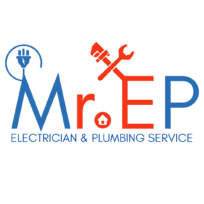
Must-Have Electrical and Plumbing Tools for Every Homeowner
In every household, there comes a time when a light switch stops working, faucet leaks, or a drain gets clogged. When these minor inconveniences occur, having the right tools at your disposal can save you time and money on repairs. In this blog post, we’ll explore the essential electrical and plumbing tools that every homeowner should have on hand. Not only will these tools help you address common issues quickly, but they can also prevent small problems from turning into major headaches.
Electrical Tools for Homeowners:
- Screwdrivers: These versatile tools are a must-have for any homeowner. You’ll need both flathead and Phillips-head screwdrivers in various sizes to tackle a wide range of tasks, from tightening loose outlet covers to replacing switches.
- Needle-nose Pliers: These pliers are invaluable for gripping and bending wires when making electrical connections or repairs.
- Wire Stripper/Cutter: When dealing with electrical wires, a wire stripper/cutter ensures that you can safely remove insulation without damaging the wire itself.
- Voltage Tester: Safety should be your top priority when working with electricity. A voltage tester allows you to check if electrical circuits are live or dead before you start working on them.
- Circuit Tester: For testing outlets and switches to ensure they’re functioning correctly. This tool is especially useful if you’re troubleshooting electrical problems in your home.
- Multimeter: While more advanced, a multimeter is a valuable tool for measuring voltage, current, and resistance. It’s handy for diagnosing electrical issues beyond basic household repairs.
- Electrical Tape: Used for insulating exposed wires and making temporary repairs. It’s an essential tool for ensuring safety when dealing with electrical components.
- Wire Nuts: These connectors are used to securely join wires together. They come in various sizes to accommodate different wire gauges.
- Extension Cord: When you need power in a hard-to-reach area, a good-quality extension cord can be a lifesaver.
- Flashlight: Essential for working in dark or confined spaces, especially during power outages or when inspecting electrical panels.
Plumbing Tools for Homeowners:
- Adjustable Wrench: This versatile tool is essential for tightening or loosening plumbing nuts and fittings. It’s especially useful when working on faucets and pipes.
- Pipe Wrench: Designed specifically for gripping and turning pipes and fittings, a pipe wrench is indispensable for plumbing repairs.
- Plunger: When it comes to clearing clogs in toilets, sinks, and drains, a plunger is your go-to tool. Every homeowner should have one readily available.
- Pipe Cutter: When you need to cut through pipes cleanly and precisely, a pipe cutter is essential. It ensures a proper fit when replacing sections of pipe.
- Pipe Thread Tape (Teflon Tape): This tape is used to create watertight seals on threaded connections, preventing leaks in pipes and fittings.
- Plumber’s Putty: Ideal for creating watertight seals around sinks and drains. It’s a must-have when installing or repairing plumbing fixtures.
- Plumbing Snake or Auger: For those stubborn drain and pipe clogs, a plumbing snake or auger can save the day. It’s a tool that every homeowner should keep handy.
- Bucket: Often overlooked, a bucket can be incredibly useful for catching water during plumbing repairs and as a general utility tool around the house.
- Pipe Repair Clamps or Couplings: These are handy for temporary fixes on leaking pipes until a permanent solution can be implemented.
- Plumbing Pliers: Designed for plumbing tasks, these pliers have a serrated jaw for better grip when working with pipes and fittings.
Having these essential electrical and plumbing tools on hand can empower homeowners to tackle common issues promptly. However, it’s crucial to remember that while these tools are suitable for minor repairs, more complex or major electrical and plumbing work should be entrusted to licensed professionals. Safety should always be a priority when working with electricity or plumbing systems. When in doubt, consult a professional to avoid potential hazards or costly mistakes.

